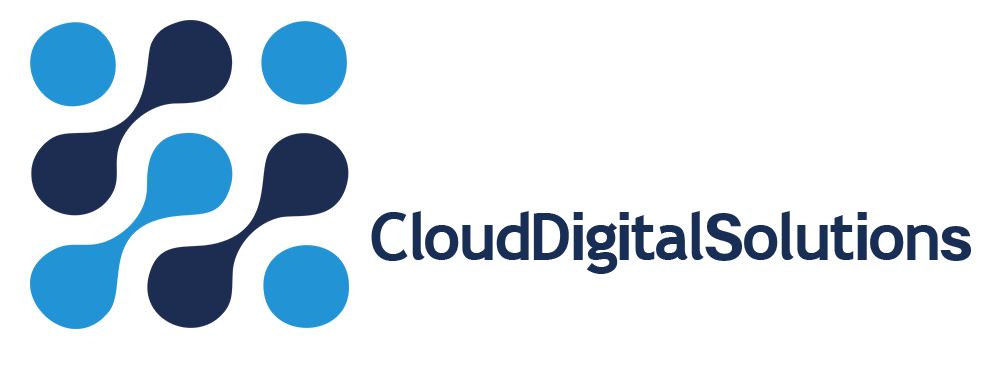The cloud has transformed the way businesses operate, offering scalable, flexible, and cost-efficient solutions for storing data, running applications, and powering digital innovation. With several cloud service providers offering different sets of features, organizations need to carefully evaluate their options when selecting a cloud platform that aligns with their needs.
In this blog post, we’ll explore some of the leading cloud solutions in the industry: Amazon Web Services (AWS), Microsoft Azure, Google Cloud Platform (GCP), and others. We’ll compare their features, strengths, and use cases to help businesses make an informed decision about their cloud strategy.
What is Cloud Computing?
Cloud computing refers to the delivery of computing services—including storage, processing power, networking, and software—over the internet. Instead of relying on local servers or personal computers, cloud services allow businesses to scale resources on-demand, paying only for what they use.
There are three main types of cloud models:
- IaaS (Infrastructure as a Service): Provides virtualized computing resources over the internet.
- PaaS (Platform as a Service): Provides hardware and software tools over the internet, typically for application development.
- SaaS (Software as a Service): Offers software applications via the internet, eliminating the need for local installation.
Now, let’s look at some of the top cloud providers in the market today.
1. Amazon Web Services (AWS)
Amazon Web Services (AWS) is one of the most widely used cloud platforms globally, offering a comprehensive suite of services designed for businesses of all sizes. AWS provides robust solutions for computing, storage, databases, machine learning, analytics, IoT, and more. It has a significant presence in industries ranging from healthcare and finance to entertainment and retail.
Key Features of AWS:
- EC2 (Elastic Compute Cloud): Virtual servers that allow you to run applications and scale on-demand.
- S3 (Simple Storage Service): Scalable object storage for data backup, archiving, and recovery.
- RDS (Relational Database Service): Managed relational databases like MySQL, PostgreSQL, and SQL Server.
- Lambda: Serverless computing for running code without managing servers.
- AWS Elastic Beanstalk: A PaaS offering for deploying and managing applications without the need to manage infrastructure.
- Machine Learning Services: AWS offers a wide range of machine learning services like SageMaker for building, training, and deploying models.
Strengths of AWS:
- Scalability: AWS provides unmatched scalability, allowing businesses to adjust their resources based on traffic and demand.
- Global Reach: AWS has an extensive global infrastructure with data centers located across multiple regions and availability zones.
- Comprehensive Service Catalog: With over 200 services, AWS is suitable for all types of use cases, including enterprise IT, mobile applications, and big data analytics.
When to Use AWS:
AWS is ideal for large-scale, complex environments that require high flexibility, scalability, and a wide variety of services. It’s also the go-to option for businesses building data-intensive applications like big data analytics, machine learning, and IoT.
2. Microsoft Azure
Microsoft Azure is a cloud computing platform and service created by Microsoft, providing a broad set of cloud services, including computing, analytics, storage, and networking. Azure integrates well with existing Microsoft products, making it a preferred choice for businesses already using Microsoft software like Windows Server, SQL Server, and Active Directory.
Key Features of Azure:
- Azure Virtual Machines: Scalable computing power with the ability to run virtualized applications and workloads.
- Azure Blob Storage: Object storage for large amounts of unstructured data like images, video, and text.
- Azure SQL Database: A fully managed relational database service offering high availability and security.
- Azure Kubernetes Service (AKS): A container orchestration service for managing Docker containers and Kubernetes clusters.
- Azure Functions: Serverless compute service for running event-driven code in response to triggers without managing servers.
- Azure Cognitive Services: A suite of AI tools for natural language processing, computer vision, and other AI tasks.
Strengths of Azure:
- Integration with Microsoft Products: Azure is the best choice for businesses already embedded within the Microsoft ecosystem (e.g., Office 365, Active Directory, and Windows Server).
- Enterprise-Grade Solutions: Azure provides comprehensive enterprise-grade features like advanced security, compliance certifications, and hybrid cloud support.
- Hybrid Cloud Solutions: Azure allows for a seamless combination of on-premises and cloud environments through services like Azure Stack.
When to Use Azure:
Azure is a great choice for businesses looking to leverage a hybrid cloud model or those already using Microsoft products. It’s particularly well-suited for enterprises that need to run legacy applications while adopting cloud solutions.
3. Google Cloud Platform (GCP)
Google Cloud Platform (GCP) is known for its powerful data analytics, machine learning, and computing capabilities. GCP is widely used by organizations focusing on innovation, big data, and machine learning, thanks to Google’s expertise in these areas.
Key Features of GCP:
- Compute Engine: Scalable virtual machines for running custom applications and workloads.
- Google Kubernetes Engine (GKE): A fully managed Kubernetes service for deploying and managing containerized applications.
- BigQuery: A serverless data warehouse solution designed for big data analytics with fast querying capabilities.
- Cloud Functions: A serverless execution environment for building and deploying microservices.
- Cloud Machine Learning Engine: A suite of machine learning tools powered by TensorFlow and other frameworks.
- Cloud Pub/Sub: A messaging service for building event-driven systems.
Strengths of GCP:
- Big Data & Analytics: GCP excels in data analytics and handling large-scale data processing jobs, thanks to services like BigQuery and Dataflow.
- AI and Machine Learning: Google is at the forefront of AI and machine learning, with tools like AutoML and TensorFlow, making GCP ideal for AI-driven applications.
- Open Source and Kubernetes: GCP is a leader in Kubernetes management, and it offers strong support for open-source technologies.
When to Use GCP:
Google Cloud is a top choice for businesses that rely heavily on data analytics, machine learning, and big data. If you need to build intelligent applications or process large datasets, GCP provides specialized tools and capabilities to do so efficiently.
4. Other Cloud Solutions
While AWS, Azure, and Google Cloud dominate the cloud market, several other cloud providers offer tailored solutions for specific needs:
- IBM Cloud: Known for its strong support for AI, blockchain, and cognitive computing, IBM Cloud is a solid choice for businesses with specific enterprise or hybrid cloud requirements.
- Oracle Cloud: Primarily focused on providing database and enterprise solutions, Oracle Cloud is ideal for organizations running mission-critical workloads.
- Alibaba Cloud: Leading cloud provider in China and Asia, Alibaba Cloud offers a range of services focused on data storage, AI, and big data processing.
Choosing the Right Cloud Platform for Your Business
When selecting a cloud provider, businesses need to evaluate factors such as:
- Specific Use Case: What are your business goals (e.g., big data, machine learning, hybrid cloud)?
- Existing Technology Stack: If your organization already uses Microsoft or Google products, Azure or GCP may be the best fit.
- Global Reach: Consider the availability of data centers in your region if you’re working in a global or highly regulated environment.
- Cost: Compare pricing models to find the most cost-effective solution for your needs.
Conclusion: The Cloud Journey
Cloud computing offers limitless opportunities for businesses to innovate, scale, and streamline their operations. Whether you choose AWS, Azure, Google Cloud, or another provider, each cloud platform brings its own strengths to the table. By carefully evaluating your needs and choosing the right provider, your organization can fully leverage the power of the cloud to drive digital transformation and stay competitive in today’s fast-paced business environment.

